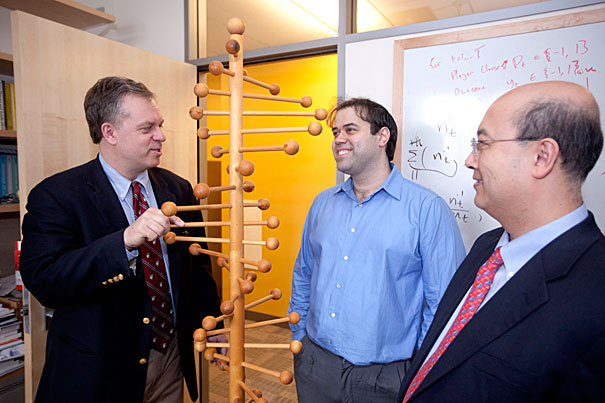Health
-

6 keys to a long, healthy life (ice cream included)
Also, why reading Ben Franklin beats climbing Mount Everest
-

Six cancers rising faster in younger adults than older ones
Large new global study fuels growing concern over trend of increases in several types

-

What’s next for GLP-1s?
Scientists eye new treatment targets for popular weight-loss drugs, from heart failure to addiction
-

Pricey blockbuster GLP-1s are costing users — and most of the rest of us, too
Health insurers are passing along cost for coverage in form of higher rates across the board, policy researcher says
-

Drinking 2-3 cups of coffee a day tied to lower dementia risk
Caffeinated tea also found to slow cognitive decline in study

-

New AI tool predicts brain age, dementia risk, cancer survival
Unlike other AI models, BrainIAC needs limited data to ID key neurological health indicators

-
The positives of playing favorites
As described in a paper in Scientific Reports, a study led by Feng Fu, a postdoctoral researcher at Harvard’s Program for Evolutionary Dynamics, found that in-group favoritism — the tendency of people to help other members of the same group — is critical in establishing high-level cooperation that ultimately benefits the whole.

-
Clot-busting technology goes straight to work
Researchers at the Wyss Institute for Biologically Inspired Engineering at Harvard have developed a novel biomimetic strategy that delivers life-saving nanotherapeutics directly to obstructed blood vessels, dissolving blood clots before they cause serious damage or even death.
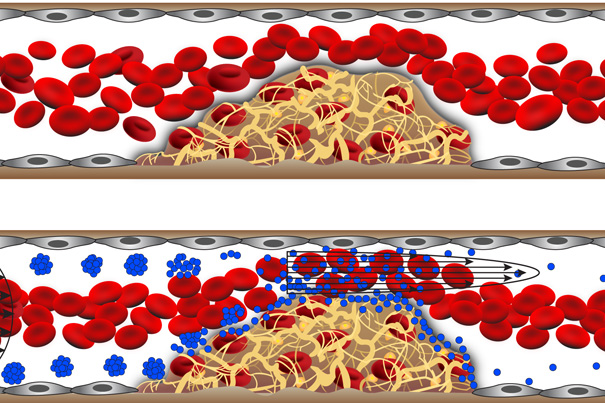
-
When skin cancer cells resist drug treatment
Harvard researchers have found that although tailored drugs can eradicate melanoma cells in the lab, they often produce only partial, temporary responses in patients. Researchers have now learned that normal cells that reside within the tumor, part of the tumor microenvironment, may supply factors that help cancer cells grow and survive despite the presence of anti-cancer drugs.

-
Worry over drug-resistant TB
A symposium at the Broad Institute calls for mobilization to battle drug-resistant tuberculosis.

-
Win for Obama, but no let-up in debate
The U.S. Supreme Court decision on Thursday upholding the basis of national health care reform is far from the last word on the topic, Harvard faculty members said, and merely raises the curtain on act two: November’s general election.

-
When a calorie is not just a calorie
A new study by Harvard researchers and published in the Journal of the American Medical Association (JAMA) challenges the notion that “a calorie is a calorie.”
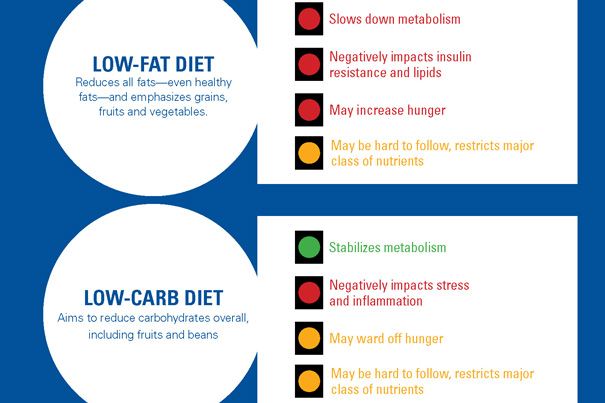
-
Heart attack worsens atherosclerosis
Researchers at Harvard Medical School and Harvard-affiliated Massachusetts General Hospital have found that the body’s immune response to heart attacks actually worsens atherosclerosis, increasing future heart attack risk, according to a study published in the journal Nature.

-
Life partner
Researchers in the Harvard lab of Bauer Fellow Peter Turnbaugh are seeking to understand how the microbes that live in our intestines affect the drugs we take and the food we eat.
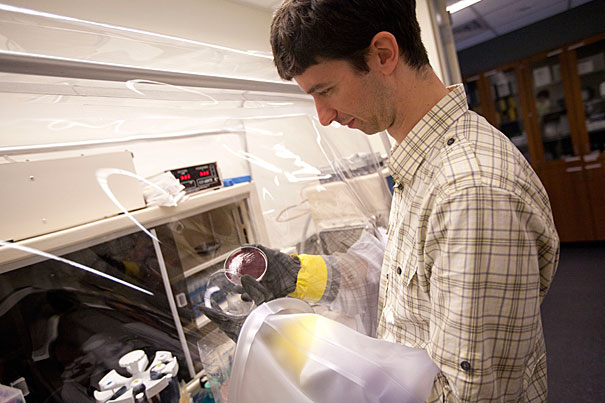
-
The growing brain
As reported on June 7 in the journal Neuron, a team of researchers led by Professor Jeff Lichtman has found that just days before birth mice undergo an explosion of neuromuscular branching. At birth, the research showed, some muscle fibers are contacted by as many as 10 nerve cells. Within days, however, all but one of those connections had been pruned away.

-
My microbes
A new study reports that the superabundance of microbial life lining our GI tracts has co-evolved with us. These bacteria, which are essential for a healthy immune system, are ultimately our evolutionary partners.
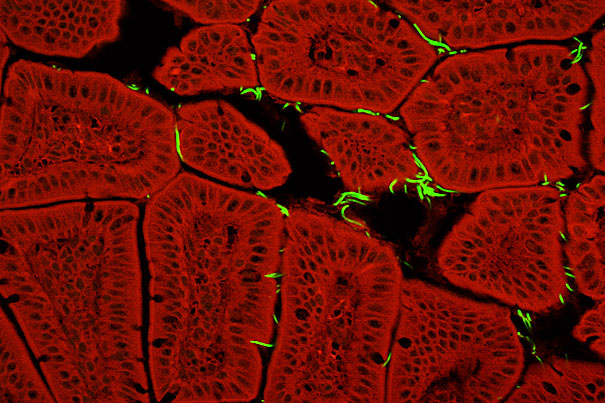
-
Brigham team implants artificial heart
The first complete artificial heart transplant in New England was performed at Harvard-affiliated Brigham and Women’s Hospital.

-
Climbing out of hiding
For decades, scientists have been stymied in their attempts to better understand proboscis anole, a small lizard whose defining feature is a horn on its nose, because it appeared to be all but extinct — until now.

-
The problem of pre-existing mutations
In a critical step that may lead to more-effective HIV treatments, Harvard scientists have found that, in a small number of HIV patients, pre-existing mutations in the virus can cause it to develop resistance to the drugs used to slow the progression of the disease.

-
Tracing the brain’s connections
A team of researchers is using a genetically modified version of the rabies virus to create the first comprehensive list of inputs that connect directly to dopamine neurons in two regions of the brain.
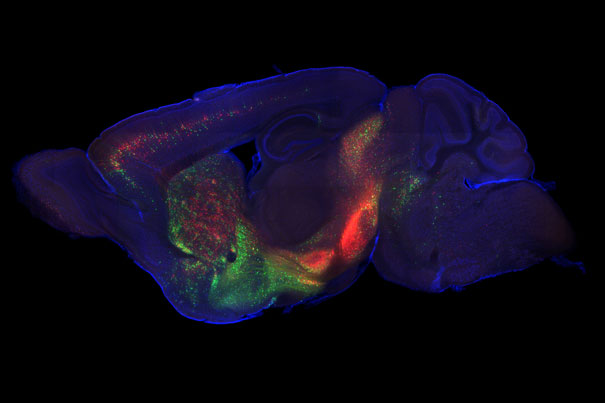
-
Mapping microbes in people
New studies involving Harvard School of Public Health researchers have helped to identify and analyze the vast human “microbiome,” the more than 5 million microbial genes in the body.
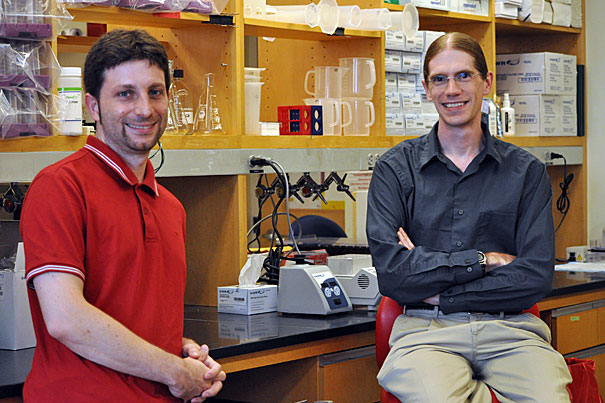
-
Training leaders for malaria fight
A group of mid-career officials gathered at Harvard Business School for an intensive course focused on educating a generation of leaders for the global campaign to eradicate malaria.

-
‘Stealing’ life’s building blocks
Researchers have found that a parasitic flower takes large portions of its genetic code from its host, and that some genes borrowed by the flowers may even be functional. The surprising finding suggests that the process may convey some evolutionary advantage to the flowers.

-
Exercise reduces psoriasis risk
A study by researchers at Harvard-affiliated Brigham and Women’s Hospital adds to the list of medical problems that exercise eases, showing that vigorous activity reduces a woman’s risk of developing the skin condition psoriasis by 25 to 30 percent over the study subject who exercised the least.

-
Probing the sparrow’s beastly past
A new study led by Harvard scientists shows that birds are, essentially, living dinosaurs, with skulls that are remarkably similar to those of their juvenile ancestors.
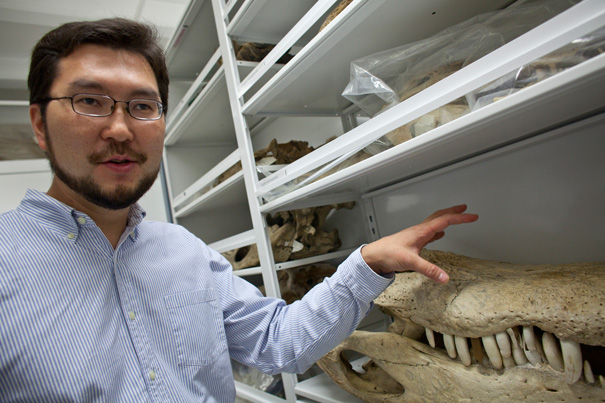
-
Fish in depth
The renovated fish gallery at the Harvard Museum of Natural History, open as of June 2, includes displays that explain both fish biology and the science being conducted on the topic at Harvard.

-
Life lessons from an old worm
Research is uncovering the genetic roots of aging, peeling back the once common understanding that creatures simply “wore out” as they aged, and slowly revealing the mechanisms that control a process determined by our genes and that proceeds at different speeds for different species.

-
Signs of progress against PTSD
A decade after the start of the wars in Afghanistan and Iraq, studies have shown that the incidence of post-traumatic stress disorder (PTSD) among troops is surprisingly low, and a Harvard researcher credits the drop, in part, to new efforts by the Army to prevent PTSD, and to ensure that those who develop the disorder receive the best treatment available.

-
Unraveling the secrets of the epilepsy diet
Researchers at Harvard Medical School and Harvard-affiliated Dana-Farber Cancer Institute have identified a protein that plays a key role in the long-mysterious effectiveness of an extremely low-calorie, high-fat, low-carbohydrate diet in suppressing epileptic seizures.

-
Taking the long way home
A Harvard graduate student has shown that some Australian and Pacific Island daddy longlegs took an unusual path to their new homes: drifting from the Americas and then island-hopping to their new continental home in Australia.
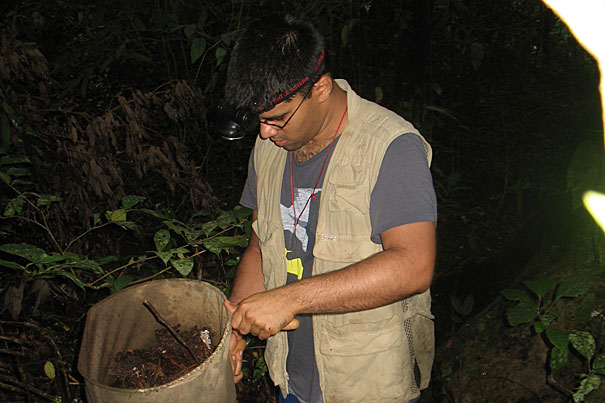
-
Following the worm
Harvard research examining the nervous system of Caenorhabditis elegans — tiny, transparent worms — suggest a path for investigations that may shed light on disorders such as schizophrenia.

-
Scientists restore basic vision in lab mice
A researcher at Harvard-affiliated Children’s Hospital and Harvard Medical School has regenerated optic nerves in laboratory animals and restored basic vision to the animals.
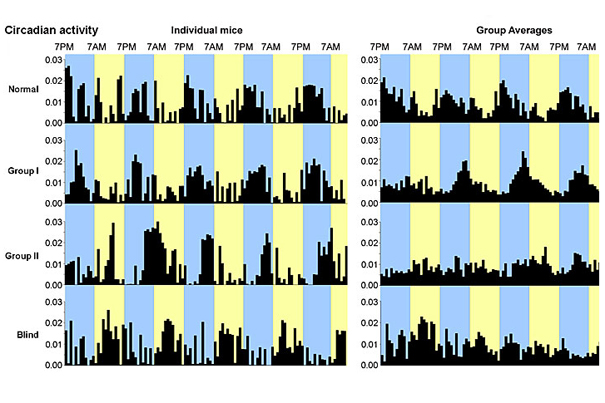
-
Vivid details
A landmark effort to sequence the genome of the butterfly Heliconius melpomene has revealed that it shares genes that control color patterns with two species that closely mimic its appearance — Heliconius timareta and Heliconius elevatus — suggesting that all three exchange genes as a result of occasional hybridization.

-
Astral feast
Supermassive black holes snack infrequently, making the recent discovery of a black hole in the act of feeding all the more interesting to astronomers.

-
What makes a worm say ‘yuck’
Researchers at Harvard-affiliated Massachusetts General Hospital have uncovered a new way that animals detect pathogens, by detecting disruptions of critical cellular processes.
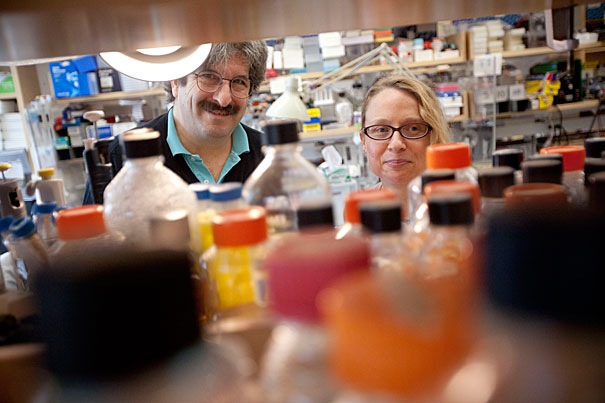
-
Thinking about health as an investor might
A “proof-of-concept” study that applies financial portfolio theory to federal life science research funding shows that potentially significant gains are available by altering the allocation of funding by the National Institutes of Health.
